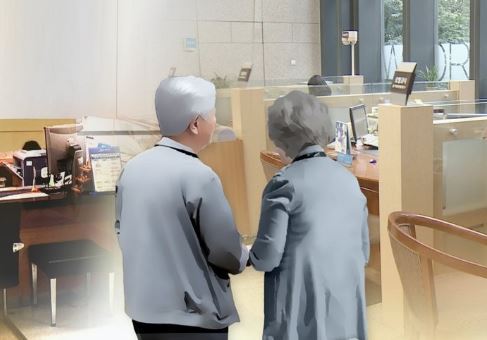Korean seniors spending less than peers in US, Japan: report
By YonhapPublished : Oct. 28, 2018 - 09:31
South Korean seniors are spending less compared with their contemporaries in the United States and Japan and struggling with a sharper drop in income, a parliamentary report showed Sunday.
According to the 2019 and midterm economic forecast by the National Assembly Budget Office, the average propensity to consume by people over 60 stood at 67.2 percent in 2016.

This is significantly smaller than 88.6 percent for Japanese in the same age bracket and 104 percent for people over 65 in the US.
The consumption propensity is the ratio of total consumption spending to disposable income factoring in taxes and insurance payment.
The low numbers for seniors is different from global trends, NABO said.
In many countries, the APC is high among people in their 20s and 30s, who spend more despite generally earning less, falls off for people in their 40s and 50s before making a comeback for those over 60.
The National Assembly office said numbers reflect this in the world's largest and third-largest economies, although not in South Korea.
In Asia's fourth-largest economy, the APC actually peaked for people in their 40s by reaching 75.9 percent, then falling to 67.9 percent for those in their 50s before dropping even further to the lowest level of all age groups after 60.
"There can be a drop after a certain age, but in South Korea the rate of decrease is sharp, with average income for households made up of people in their 60s standing at 2.64 million won, or 64.2 percent of the national average of 4.11 million won," NABO said.
It said that while seniors experienced similar contractions in earnings across the world, the decrease rate was much milder with the income of seniors in the US standing at 94.5 percent of the national average and those for Germany standing at 88.3 percent.
In some countries like France, seniors had more disposable income compared with younger generations.
The latest report said the reason why South Korean seniors spend less is because their assets are mostly tied up in houses and land that are easier to convert into cash.
"Among seniors in the country, only 18.8 percent of their assets are financial holdings, resulting in these people naturally having less money to spend," NABO said.
It added that such concentration of wealth in real estate is affecting overall consumption, although gradual improvements in the country's pension system can make it easier for seniors to spend more money in the future. (Yonhap)




![[Herald Interview] 'Amid aging population, Korea to invite more young professionals from overseas'](http://res.heraldm.com/phpwas/restmb_idxmake.php?idx=644&simg=/content/image/2024/04/24/20240424050844_0.jpg&u=20240424200058)












![[KH Explains] Korean shipbuilding stocks rally: Real growth or bubble?](http://res.heraldm.com/phpwas/restmb_idxmake.php?idx=652&simg=/content/image/2024/04/25/20240425050656_0.jpg&u=)

